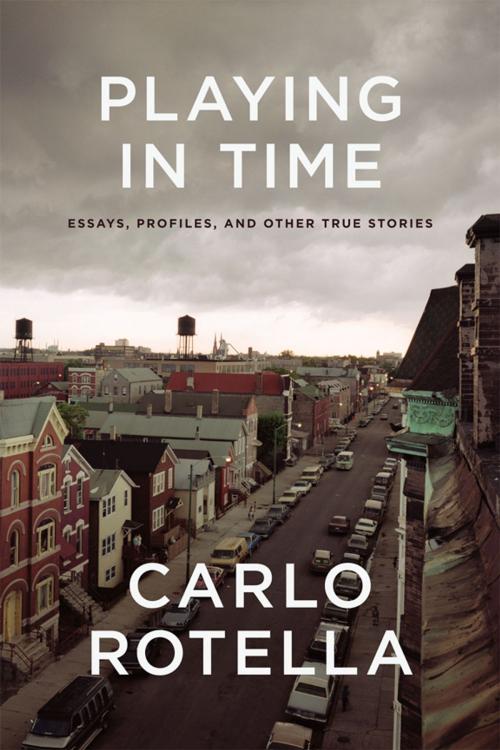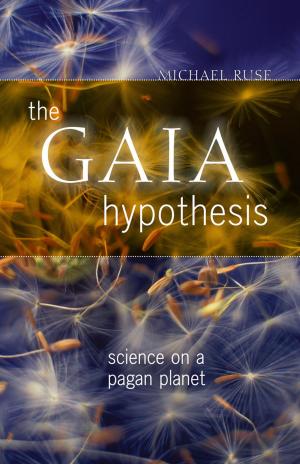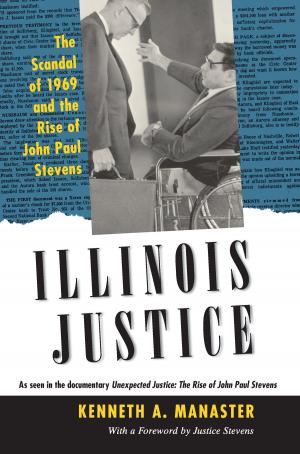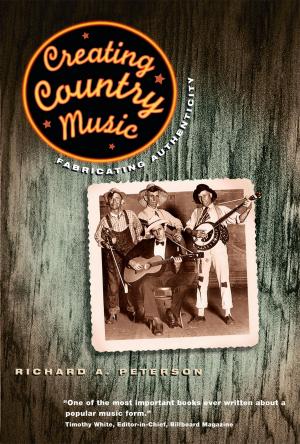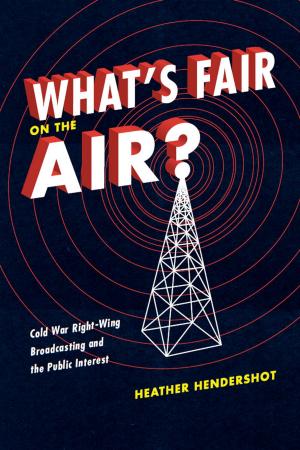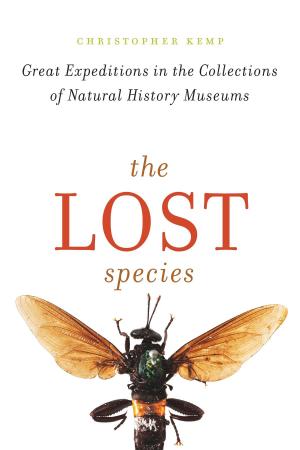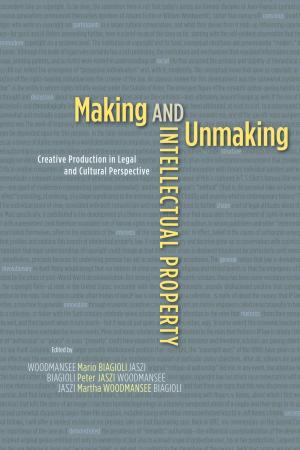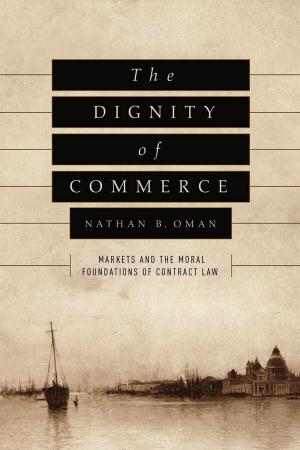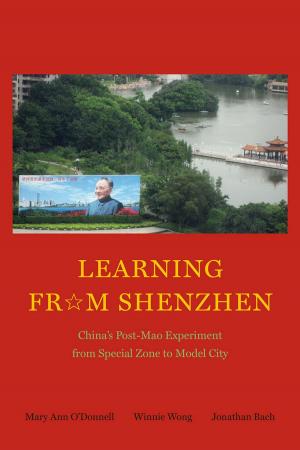Playing in Time
Essays, Profiles, and Other True Stories
Nonfiction, Sports, Reference, Essays, Fiction & Literature, Essays & Letters, Anthologies| Author: | Carlo Rotella | ISBN: | 9780226729114 |
| Publisher: | University of Chicago Press | Publication: | September 17, 2012 |
| Imprint: | University of Chicago Press | Language: | English |
| Author: | Carlo Rotella |
| ISBN: | 9780226729114 |
| Publisher: | University of Chicago Press |
| Publication: | September 17, 2012 |
| Imprint: | University of Chicago Press |
| Language: | English |
From jazz fantasy camp to running a movie studio; from a fight between an old guy and a fat guy to a fear of clowns—Carlo Rotella’s Playing in Time delivers good stories full of vivid characters, all told with the unique voice and humor that have garnered Rotella many devoted readers in the New York Times Magazine, Boston Globe, and Washington Post Magazine, among others. The two dozen essays in Playing in Time, some of which have never before been published, revolve around the themes and obsessions that have characterized Rotella’s writing from the start: boxing, music, writers, and cities. What holds them together is Rotella’s unique focus on people, craft, and what floats outside the mainstream. “Playing in time” refers to how people make beauty and meaning while working within the constraints and limits forced on them by life, and in his writing Rotella transforms the craft and beauty he so admires in others into an art of his own.
Rotella is best known for his writings on boxing, and his essays here do not disappoint. It’s a topic that he turns to for its colorful characters, compelling settings, and formidable life lessons both in and out of the ring. He gives us tales of an older boxer who keeps unretiring and a welterweight who is “about as rich and famous as a 147-pound fighter can get these days,” and a hilarious rumination on why Muhammad Ali’s phrase “I am the greatest” began appearing (in the mouth of Epeus) in translations of The Iliad around 1987. His essays on blues, crime and science fiction writers, and urban spaces are equally and deftly engaging, combining an artist’s eye for detail with a scholar’s sense of research, whether taking us to visit detective writer George Pelecanos or to dance with the proprietress of the Baby Doll Polka Club next to Midway Airport in Chicago.
Rotella’s essays are always smart, frequently funny, and consistently surprising. This collection will be welcomed by his many fans and will bring his inimitable style and approach to an even wider audience.
From jazz fantasy camp to running a movie studio; from a fight between an old guy and a fat guy to a fear of clowns—Carlo Rotella’s Playing in Time delivers good stories full of vivid characters, all told with the unique voice and humor that have garnered Rotella many devoted readers in the New York Times Magazine, Boston Globe, and Washington Post Magazine, among others. The two dozen essays in Playing in Time, some of which have never before been published, revolve around the themes and obsessions that have characterized Rotella’s writing from the start: boxing, music, writers, and cities. What holds them together is Rotella’s unique focus on people, craft, and what floats outside the mainstream. “Playing in time” refers to how people make beauty and meaning while working within the constraints and limits forced on them by life, and in his writing Rotella transforms the craft and beauty he so admires in others into an art of his own.
Rotella is best known for his writings on boxing, and his essays here do not disappoint. It’s a topic that he turns to for its colorful characters, compelling settings, and formidable life lessons both in and out of the ring. He gives us tales of an older boxer who keeps unretiring and a welterweight who is “about as rich and famous as a 147-pound fighter can get these days,” and a hilarious rumination on why Muhammad Ali’s phrase “I am the greatest” began appearing (in the mouth of Epeus) in translations of The Iliad around 1987. His essays on blues, crime and science fiction writers, and urban spaces are equally and deftly engaging, combining an artist’s eye for detail with a scholar’s sense of research, whether taking us to visit detective writer George Pelecanos or to dance with the proprietress of the Baby Doll Polka Club next to Midway Airport in Chicago.
Rotella’s essays are always smart, frequently funny, and consistently surprising. This collection will be welcomed by his many fans and will bring his inimitable style and approach to an even wider audience.
